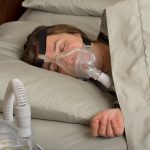
Think you might be struggling with depression? It’s not always easy to recognize, but identifying the symptoms is the first step toward getting the help you need. Depression is a common mental health condition that affects millions of people worldwide. In the United States alone, an estimated 21 million adults had at least one major bout of depression in 2020, representing about 8.4% of the adult population, according to the U.S. National Institute of Mental Health (NIMH). Symptoms of depression vary from person to person, but some are more commonly experienced than others. Exploring the most common symptoms will help you know what to look for if you suspect that you or someone you know may be struggling with depression. What are symptoms of depression? Craig Sawchuk, a clinical psychologist at the Mayo Clinic in Rochester, Minn., said “understanding the basics of depression can help you take the next step.” In a Mayo Clinic video, he noted: “Depression is a mood disorder that causes feelings of sadness that won’t go away … and people who experience depression can’t just snap out of it.” Depression can show up in many ways and can affect each person differently. But some common symptoms are associated with this condition. They can range from feeling persistently sad or hopeless to losing interest in activities you once enjoyed. Other symptoms may… read on > read on >






































